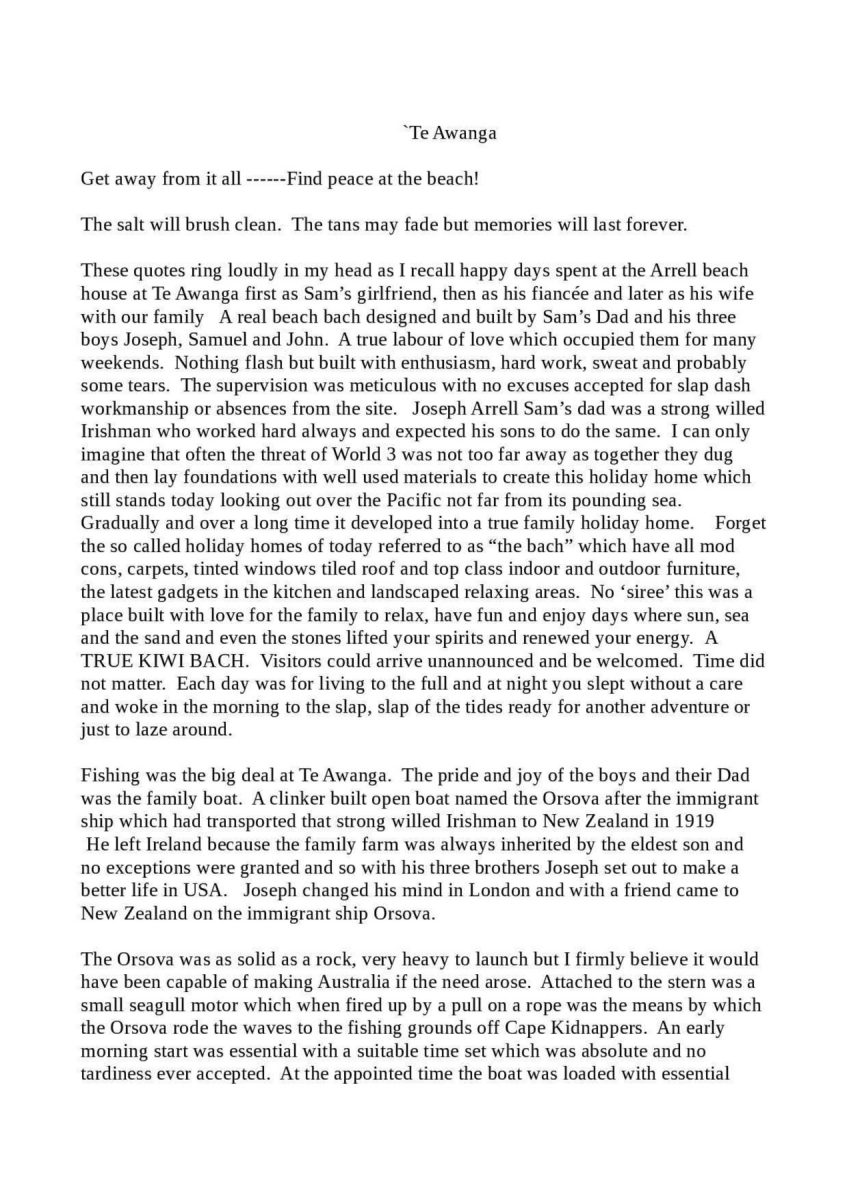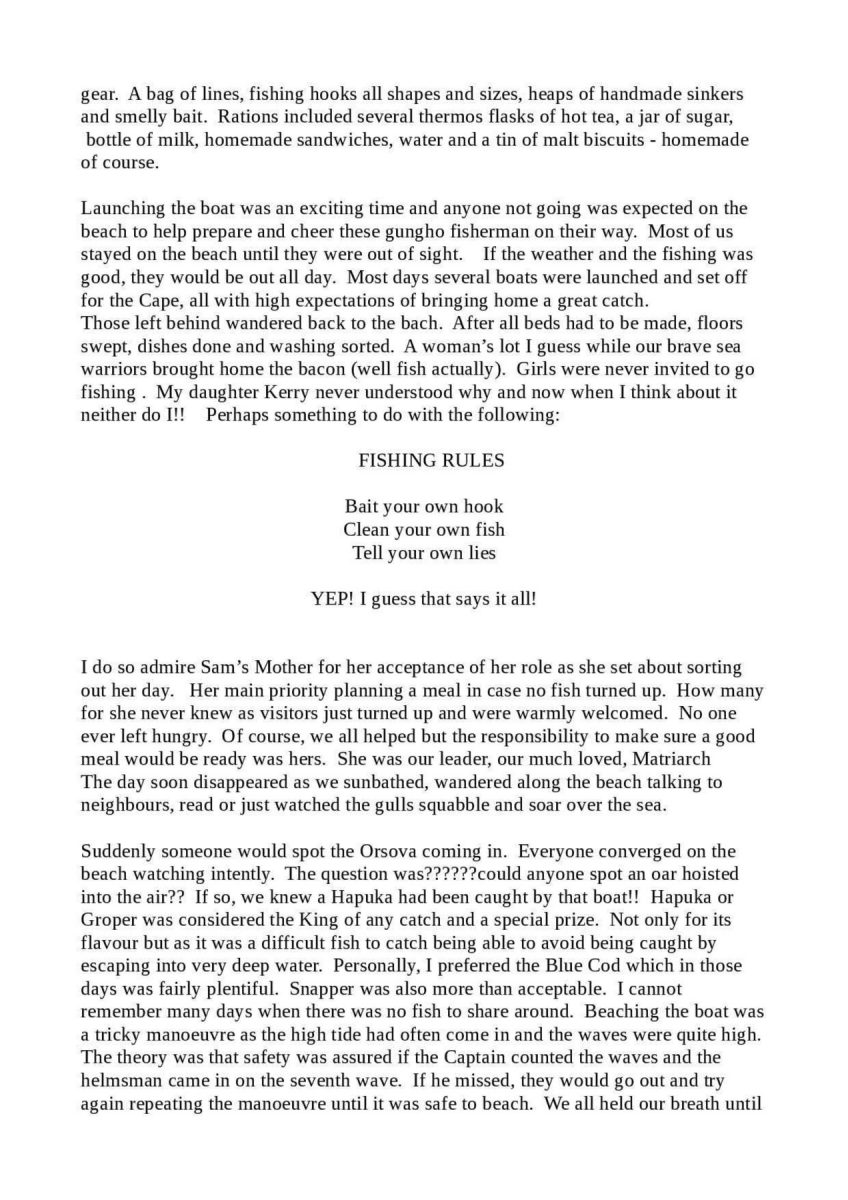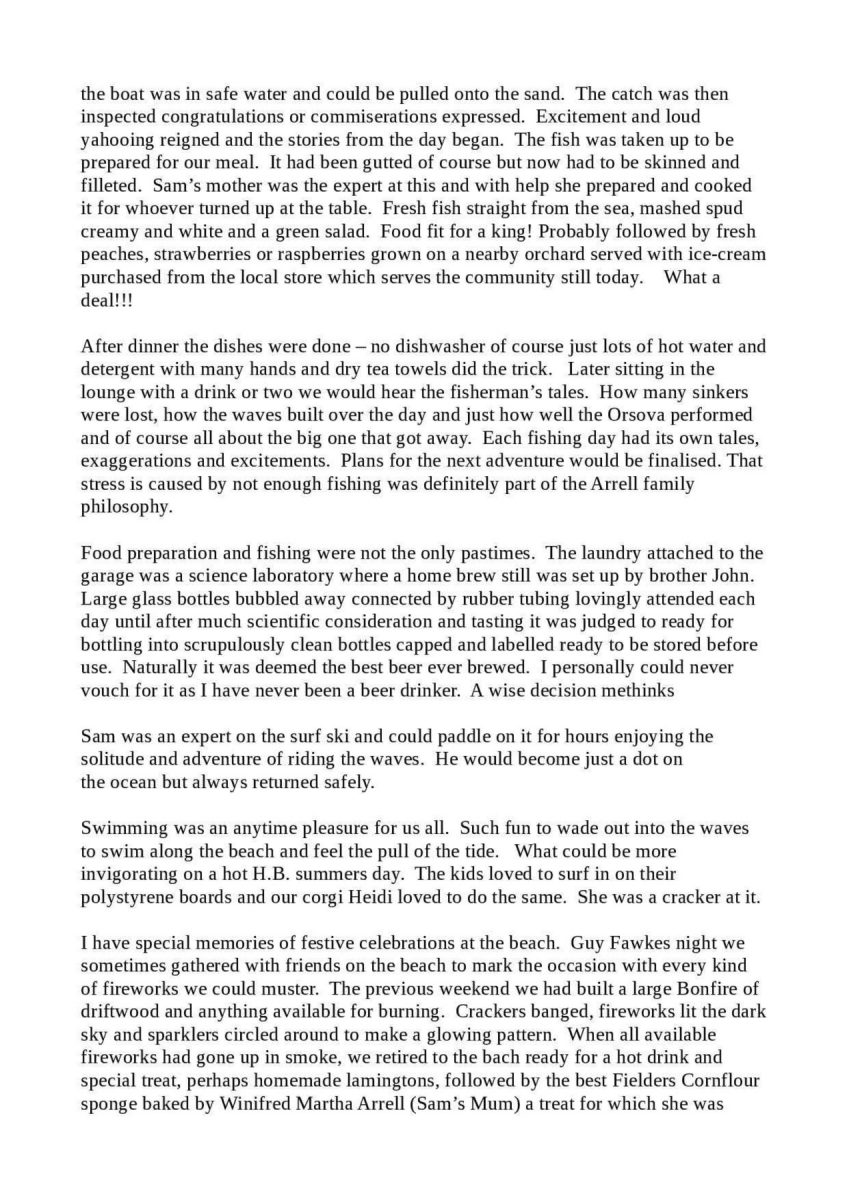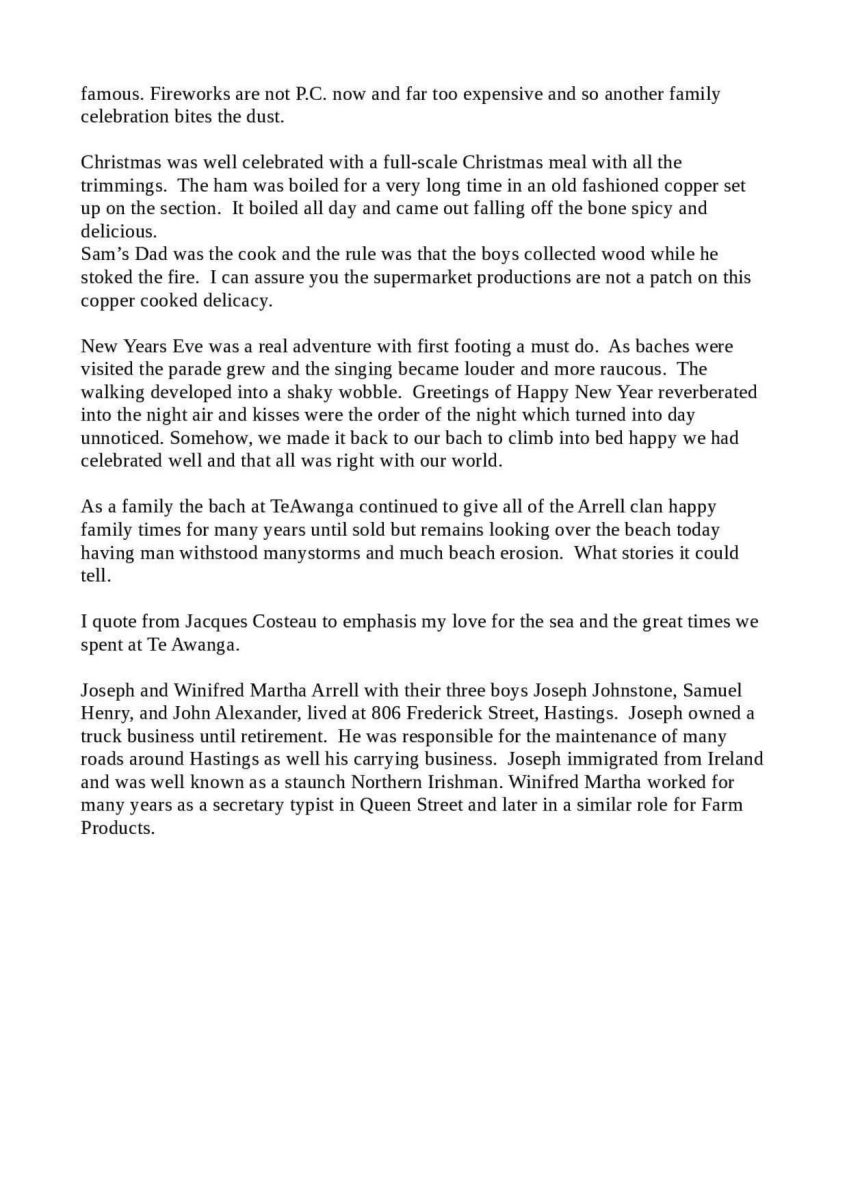gear. A bag of lines, fishing hooks all shapes and sizes, heaps of handmade sinkers and smelly bait. Rations included several thermos flasks of hot tea, a jar of sugar, bottle of milk, homemade sandwiches, water and a tin of malt biscuits – homemade of course.
Launching the boat was an exciting time and anyone not going was expected on the beach to help prepare and cheer these gungho fisherman on their way. Most of us stayed on the beach until they were out of sight. If the weather and the fishing was good, they would be out all day. Most days several boats were launched and set off for the Cape, all with high expectations of bringing home a great catch.
Those left behind wandered back to the bach. After all beds had to be made, floors swept, dishes done and washing sorted. A woman’s lot I guess while our brave sea warriors brought home the bacon (well fish actually). Girls were never invited to go fishing. My daughter Kerry never understood why and now when I think about it neither do I!! Perhaps something to do with the following:
FISHING RULES
Bait your own hook
Clean your own fish
Tell your own lies
YEP! I guess that says it all!
I do so admire Sam’s Mother for her acceptance of her role as she set about sorting out her day. Her main priority planning a meal in case no fish turned up. How many for she never knew as visitors just turned up and were warmly welcomed. No one ever left hungry. Of course, we all helped but the responsibility to make sure a good meal would be ready was hers. She was our leader, our much loved, Matriarch
The day soon disappeared as we sunbathed, wandered along the beach talking to neighbours, read or just watched the gulls squabble and soar over the sea.
Suddenly someone would spot the Orsova coming in. Everyone converged on the beach watching intently. The question was??????could anyone spot an oar hoisted into the air?? If so, we knew a Hapuka had been caught by that boat!! Hapuka or Groper was considered the King of any catch and a special prize. Not only for its flavour but as it was a difficult fish to catch being able to avoid being caught by escaping into very deep water. Personally, I preferred the Blue Cod which in those days was fairly plentiful. Snapper was also more than acceptable. I cannot remember many days when there was no fish to share around. Beaching the boat was a tricky manoeuvre as the high tide had often come in and the waves were quite high. The theory was that safety was assured if the Captain counted the waves and the helmsman came in on the seventh wave. If he missed, they would go out and try again repeating the manoeuvre until it was safe to beach. We all held our breath until















Do you know something about this record?
Please note we cannot verify the accuracy of any information posted by the community.